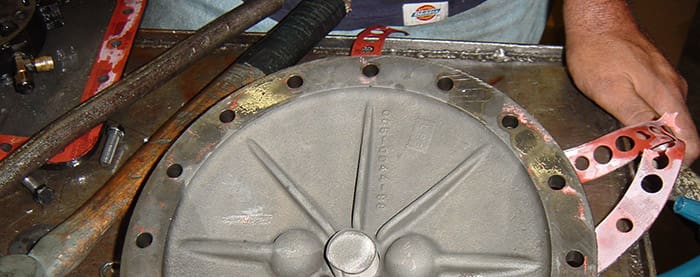If you’re an HVAC/R technician, you know that keeping commercial compressors running smoothly is crucial. It’s the heart of the system, and when it fails, it can lead to expensive repairs, system downtime, and even safety concerns. To help you avoid these headaches, here are five essential tips for maintaining your commercial HVAC/R compressors. Not only will these practices extend the life of the unit, but they will also ensure optimal performance and energy efficiency.
1. Regularly Check Oil Levels and Quality of Your Commerical Compressor
One of the most important maintenance tasks you can do for a compressor is checking the oil levels regularly. If the oil levels are too low or too high, it can lead to significant damage. Many compressors use oil to lubricate their moving parts and reduce friction. Without proper oil levels, components can overheat and wear down much faster than they should.
Make it a habit to check the oil levels at least once a month, but more often if the system is running continuously or in a particularly hot environment. If the oil looks dirty or contaminated, it’s a good idea to change it even if the levels are sufficient. Clean oil improves compressor efficiency, prevents overheating, and extends the overall lifespan of the unit.
Pro tip: Always use the recommended type of oil for the compressor model and freon you’re working with. Different compressors may require different oils based on their design and operating conditions.
2. Keep the Coils Clean
Dirty condenser and evaporator coils can severely impact the efficiency of an HVAC/R system. The coils are responsible for transferring heat, so when they’re covered in grime and debris, the compressor has to work harder to maintain the desired temperature. This not only puts a strain on the compressor but also increases energy consumption.
Cleaning the coils at least twice a year—more often if the system is in a dusty or dirty environment—helps ensure optimal airflow and efficient operation. When cleaning, be gentle to avoid damaging the fins or tubes. Using a coil cleaner or a mild detergent and water will usually do the trick. If the coils are particularly dirty, consider using a specialized cleaning agent designed for HVAC coils.
Pro tip: Check the coil fins as well. Bent fins can restrict airflow and should be straightened using a fin comb.
3. Inspect the Electrical Components and Connections of Your Commercial Compressor
The electrical system is another critical area that requires regular attention. Loose or corroded connections, damaged wiring, and worn-out components can lead to compressor failure or even pose a fire hazard. Over time, the constant vibrations of the compressor can cause connections to loosen, so it’s essential to inspect these parts during routine maintenance.
Start by turning off the power to the unit and then visually inspecting the wiring for any signs of wear, discoloration, or corrosion. Tighten any loose connections and replace damaged wires or components as necessary. It’s also a good idea to check the capacitors and contactors, as these parts often fail and can be replaced before they cause major issues.
Pro tip: If you’re working on a particularly old system, it might be worth upgrading some of the electrical components to more modern, energy-efficient alternatives. This can improve both reliability and efficiency.
4. Monitor the System’s Operating Temperature and Pressure
Compressors are designed to operate within specific temperature and pressure ranges. When the system goes beyond these limits, it can cause stress on the compressor, leading to premature failure. Monitoring these parameters can help you spot potential issues before they become serious problems.
Use gauges to check the system’s refrigerant pressure and ensure it’s within the manufacturer’s recommended range. Too much or too little refrigerant can strain the compressor. Similarly, keep an eye on the operating temperature. If the system is running too hot, it may indicate an airflow issue, dirty coils, or a problem with the refrigerant levels.
Pro tip: Consider installing sensors that can provide real-time data on temperature and pressure. These can alert you to issues immediately, allowing for quicker response times and preventing more extensive damage.
5. Shop from Trusted Commercial HVAC/R Sources
Care and maintenance won’t matter if you go with inferior units. Quality compressors make a difference. They last longer. They work much more efficiently. Choosing a remanufactured compressor gets you better value for your money. If you’re shopping for a remanufactured commercial HVAC/R compressor, go to a credible and trustworthy shop. That way, you know you’re buying quality units that will be easier to maintain and should last longer.












